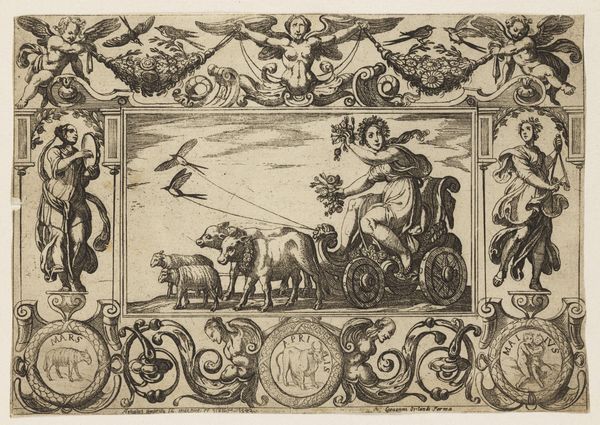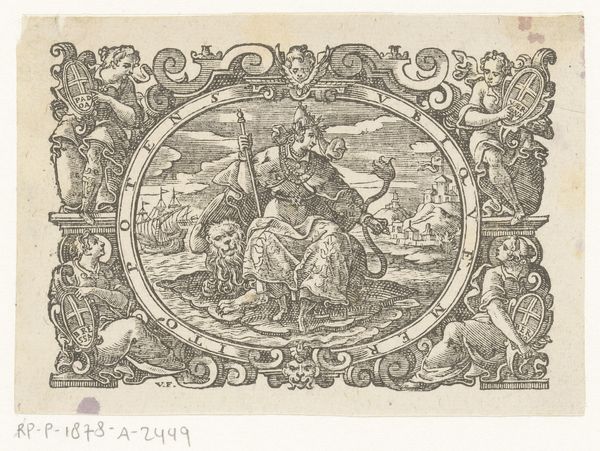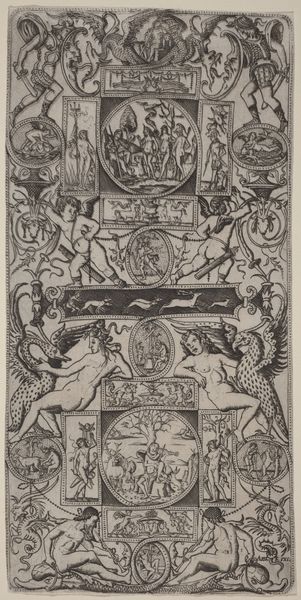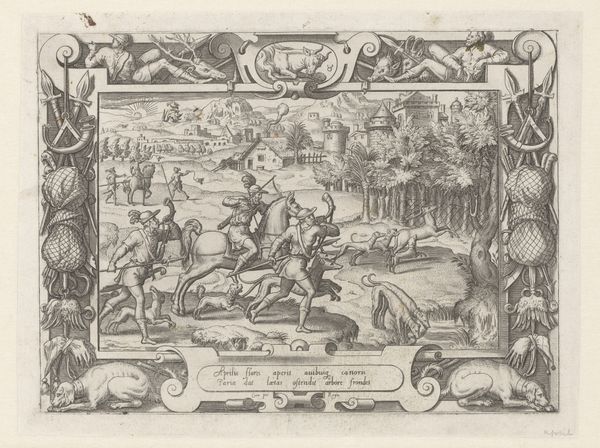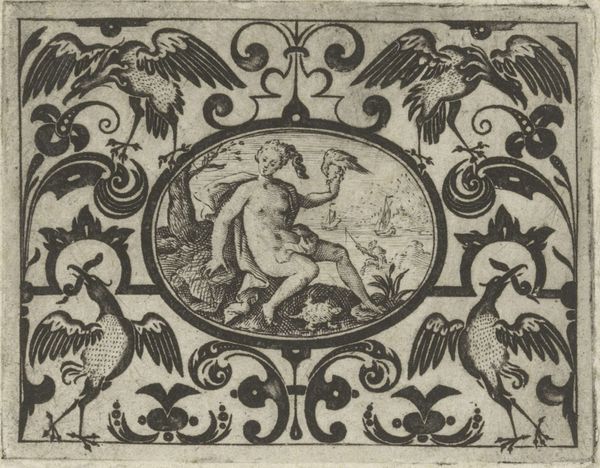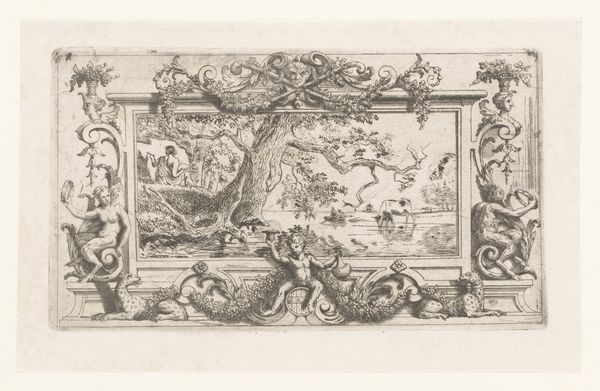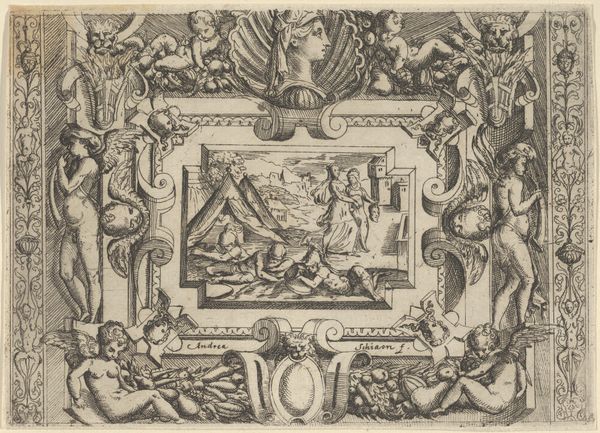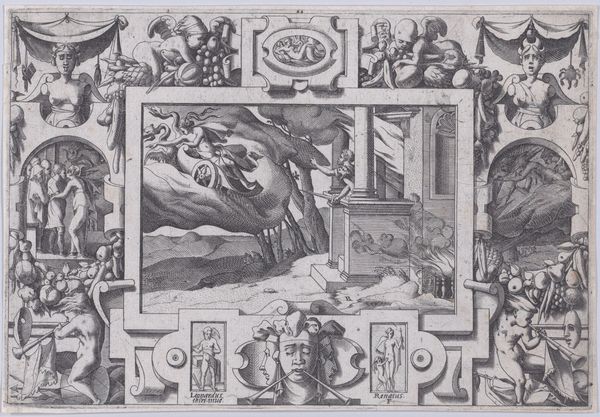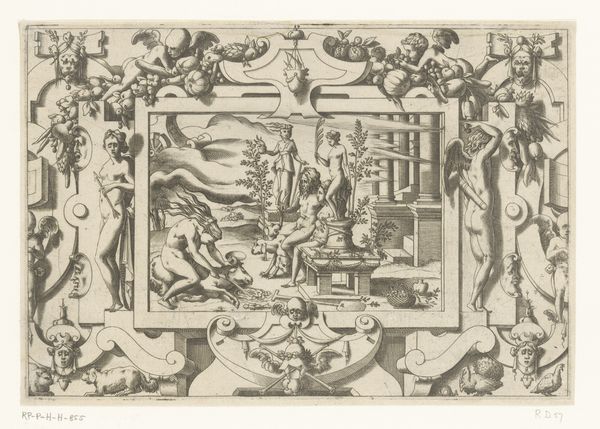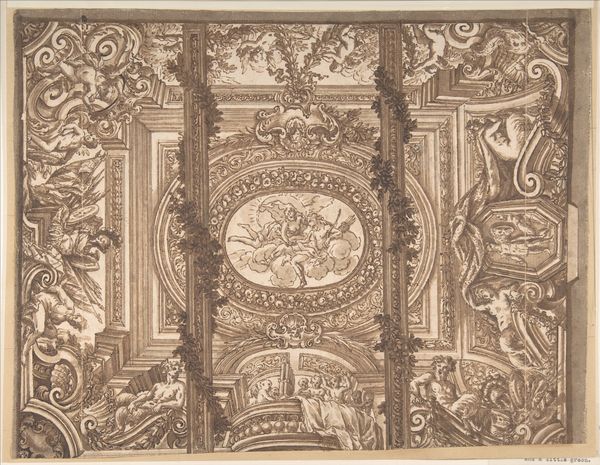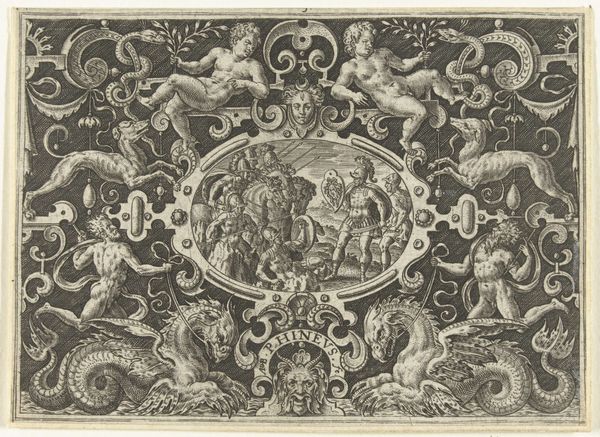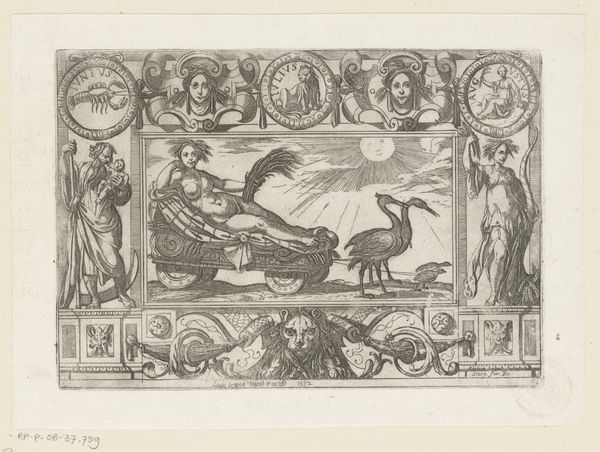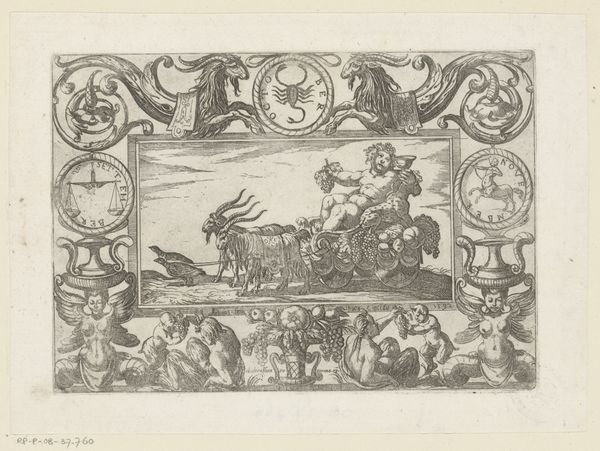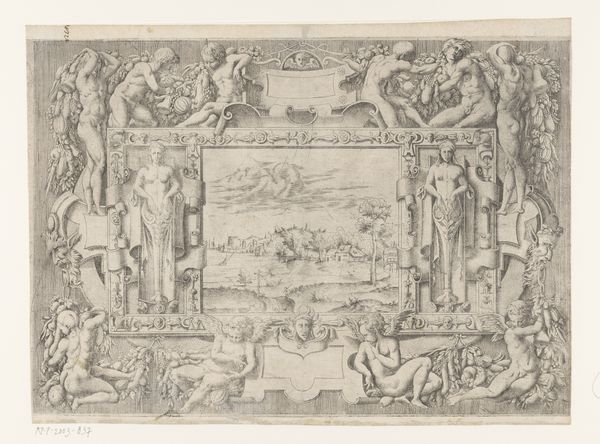
drawing, print, engraving
#
drawing
#
allegory
#
pen drawing
# print
#
pen illustration
#
pen sketch
#
mannerism
#
figuration
#
11_renaissance
#
geometric
#
line
#
history-painting
#
engraving
Dimensions: height 149 mm, width 211 mm
Copyright: Rijks Museum: Open Domain
Antonio Tempesta made this engraving called 'Lente,' or 'Spring,' sometime around 1600. It's part of a series about the seasons, full of classical imagery. We see Flora, the Roman goddess of flowers and springtime, riding in a chariot pulled by farm animals. The frame is decorated with putti, garlands, and personifications of the months of March, April, and May. This wasn't just a decorative image. These seasonal series were popular among wealthy Europeans as allegories of renewal and prosperity. Tempesta was working in Italy, where there was a strong tradition of celebrating the agricultural cycle in art. The image also reflects the values of the Renaissance, with its emphasis on classical mythology and the beauty of the natural world. To understand this print better, we could look at emblem books, agricultural treatises, and records of courtly festivals from the period. Examining 'Lente' in its social and institutional context reveals how art served to legitimize the social order.
Comments
No comments
Be the first to comment and join the conversation on the ultimate creative platform.
